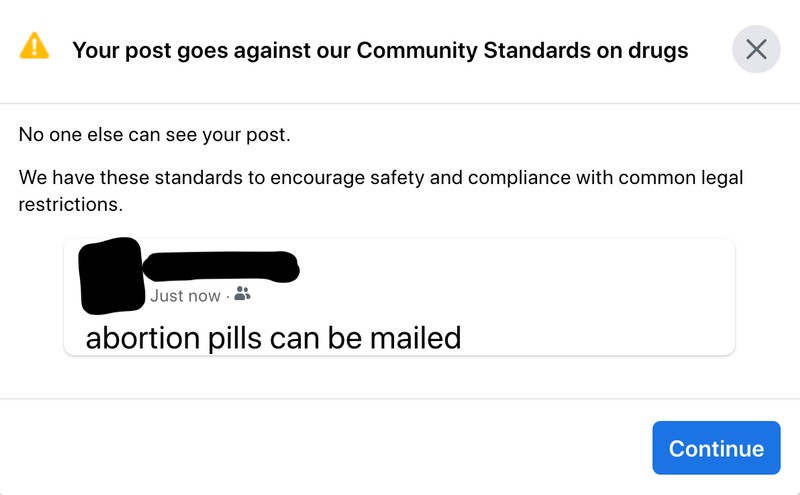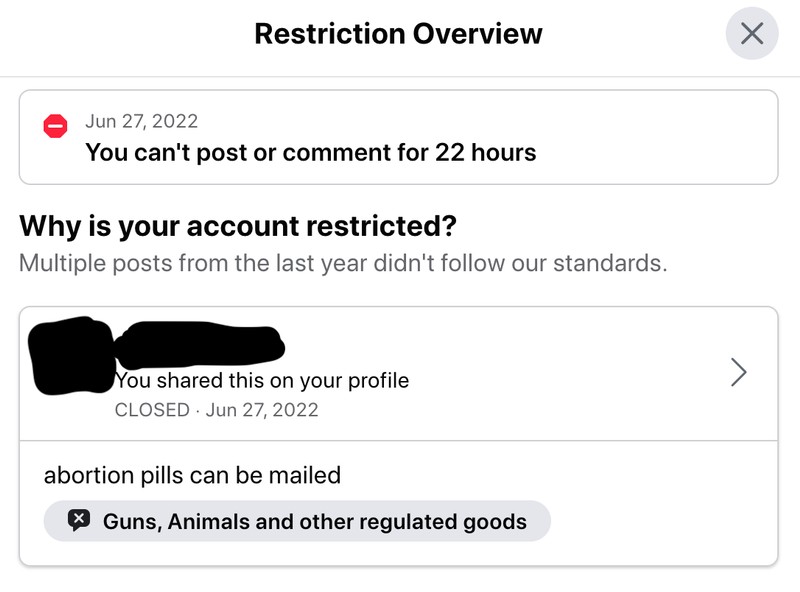Following the Supreme Court’s decision to strip away constitutional protections for abortion, the platform is temporarily banning users who share status updates explaining how to legally obtain abortion pills in the mail.
After months of speculation, the US Supreme Court has overturned Roe V Wade, the integral ruling from 1973 that gave women the constitutional right to have an abortion up to 24 weeks.
Though the decision was not a surprise when it came on Friday – even before the dramatic leak of Justice Samuel Alito’s draft opinion it was widely expected (and long dreaded) – it still sent shockwaves across the globe.
Ever since, civilians, activists, celebrities, and political figures have been openly expressing their heartbreak, anger, and disbelief on social media.
And alongside this inevitable outpouring of emotion online, some have quickly begun using their platforms to spread awareness about how to circumvent the system.
They’ve been doing so through memes and status updates explaining how women can legally obtain abortion pills in the mail, sometimes offering to send the prescriptions themselves to those living in states where the procedure is now forbidden.


One is mifepristone which halts the progesterone production that’s needed for a pregnancy to grow, and the other causes the uterus to expel pregnancy tissue.
Both can be acquired following a consultation from prescribers who have undergone certification and training.
The FDA authorises their use for the first 10 weeks of pregnancy, and the US government lifted a ban on mail-order abortion pills in April last year.
Just as promptly as the offers to help, however, Facebook has been removing such posts and temporarily banning all users who share them.
This is according to the Associated Press, which found the site to be immediately taking down anything aiming to provide more clarity around abortion access.


‘I posted it at 11 a.m. and was notified within a minute that it was removed,’ said someone AP interviewed for the report. ‘I was not notified until I tried to post later that I was banned for it.’





















